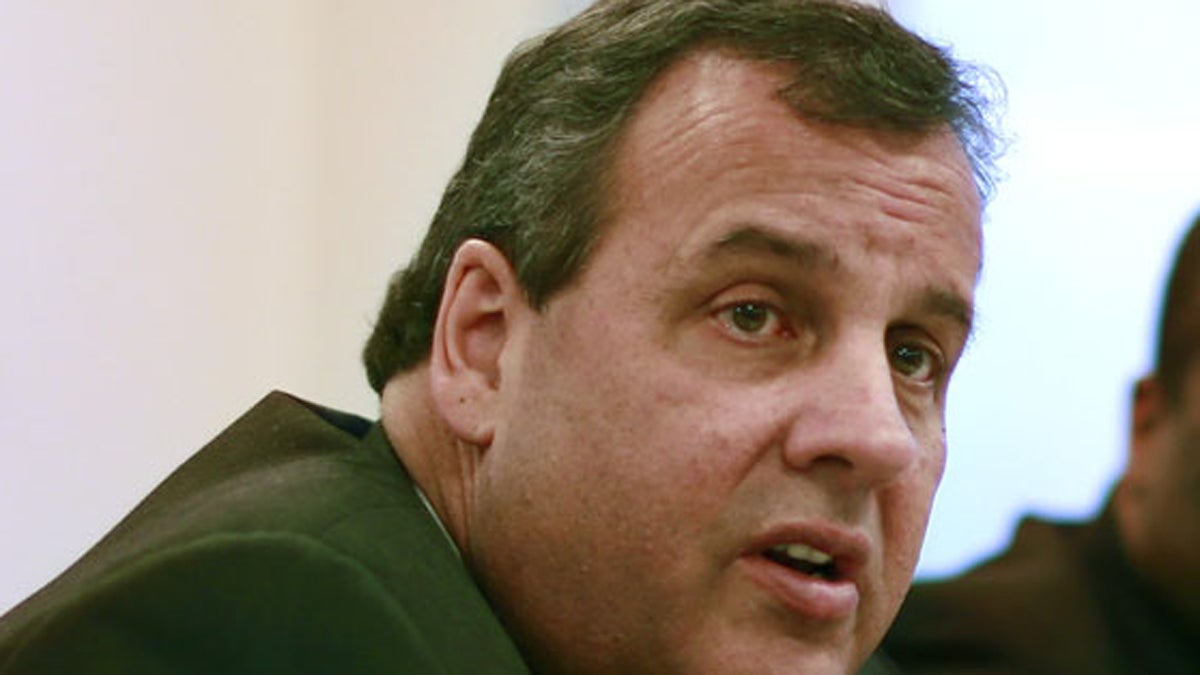Chris Christie’s education reforms encountered turbulence in 2014

As 2014 nears a close, it may be remembered as the first year that Gov. Chris Christie’s education reform agenda ran headlong into political realities, and the governor was forced to back off a bit on some of the key pieces of his plan.
The most notable instance of Christie losing ground can be seen in some of the toughest aspects of the state’s fledgling teacher evaluation system, specifically the use of student test results to gauge the performance of certain teachers.
Elsewhere, Christie for the first time acknowledged things were not going quite as planned in Newark, his reform centerpiece, when he only gave tepid backing to embattled Newark Superintendent Cami Anderson.
That hardly makes for a bad year for the governor on what is surely to be a signature issue if and when he decides to run for president, as many expect. Testament to his political strength and savvy, Christie has maneuvered through both sticky situations to ultimately press ahead.
Christie also successfully shepherded in a new and well-received Education Commissioner, David Hespe, a calming move after the more polarizing tenure of former Commissioner Chris Cerf.
The state‘s takeover of Camden schools remained on track, and the state’s school construction program appears to finally be getting back on its feet. Charters schools also continued to expand in the state, especially in the cities.
But there were clearly some hitches that slowed the momentum and left some clouds on the horizon, including a financial picture for the state that is surely going to haunt Christie’s next budget and dim any hopes for a significant increase in state help for schools.
After a winter and spring dominated by the Bridgegate scandal, much of the political drama around public education came in the summer months, when Christie moved on both the teacher evaluation system and the Newark unrest.
The former was a striking compromise for a governor who had been staunch in defending the new teacher tenure law that he signed in 2012 and touts as probably in his Top 5 list of accomplishments.
Under pressure from Democratic leaders, Christie’s administration agreed in July to scale back the use of testing in evaluating teachers for two years, a seminal part of the law.
Equally noteworthy, Christie acknowledged the undercurrent of concerns over the state’s adoption of the Common Core State Standards and the advent of new online Partnership for Assessment of Readiness for College and Careers (PARCC) exams, when he signed an executive order to create a task force to review the state’s history and future in testing.
Less than a month earlier, Christie had announced that he would reappoint Anderson as Newark’s superintendent, but on a one-year basis and under the watch of a new community-based working group. The election of Newark Mayor Ras Baraka, a staunch critic of the state’s control of the district, only put more pressure on the governor.
How much this was truly a retreat is arguable; since her reappointment Anderson has continued to press her One Newark reorganization plan in the face of resistance. The working group has not made much of a public impression as yet, either.
More telling is the far-greater attention that Christie has given his other education takeover trophy in Camden, where the governor has visited three times in the past four months to praise the progress of its schools and that of his appointee, Superintendent Paymon Rouhanifard.
A number of other developments in education policy also took place in 2014 that didn’t take much of Christie’s attention, at least in public, but were notable in themselves.
The first was the settlement of a long-running lawsuit against the state over its record of as one of the most segregated for special-education students.
The case, Disability Rights NJ v. N.J. Department of Education, saw the state launch a massive effort to push the most egregious districts to follow its plans, a process likely to continue well into next year and beyond.
The administration fared better this month, when a state Superior Court judge denied a bid to force the state to provide immediate relief to some of the state’s poorest rural districts, much as it has in the urban districts under Abbott v. Burke.
That case, Bacon v. NJ Department of Education, isn’t likely to go away, but that will be a story for another year.
____________________________________________
NJ Spotlight, an independent online news service on issues critical to New Jersey, makes its in-depth reporting available to NewsWorks.
WHYY is your source for fact-based, in-depth journalism and information. As a nonprofit organization, we rely on financial support from readers like you. Please give today.




